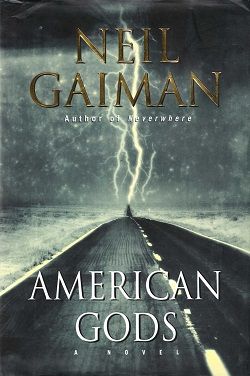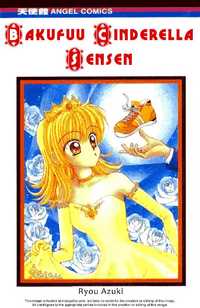American Gods by Neil Gaiman is a masterful blend of fantasy, mythology, and Americana that invites readers into a world where the old gods of mythology clash with the new gods of modern society. The novel opens with the protagonist, Shadow Moon, who is about to be released from prison when he learns of his wife Laura's tragic death in a car accident. This event serves as the catalyst for Shadow's journey, both physically across the United States and emotionally through his grief and confusion.
From the very beginning, Gaiman immerses readers in a richly woven tapestry of myth and reality. Shadow's encounter with Mr. Wednesday, a mysterious figure who claims to be a god, sets the stage for a narrative that explores the very essence of belief and the nature of divinity in contemporary America. Mr. Wednesday, who is later revealed to be an incarnation of the Norse god Odin, embodies the struggle of the old gods to retain relevance in a world that has largely forgotten them. This theme resonates deeply as Gaiman examines how modern society has shifted its focus from traditional beliefs to new forms of worship, such as consumerism and technology.
One of the most compelling aspects of American Gods is its exploration of identity and belonging. Shadow is a character caught between worlds—between the mundane reality of his life and the extraordinary realm of gods and myth. His journey across America serves as a metaphor for the search for self in a landscape that is both familiar and alien. Gaiman's portrayal of America is both a love letter and a critique; he captures the beauty and the grotesque, the mundane and the magical, all while highlighting the cultural melting pot that defines the nation.
The character development in American Gods is profound and multifaceted. Shadow evolves from a passive participant in his own life to an active player in the cosmic battle between the old and new gods. His interactions with various characters, including the enigmatic Mr. Wednesday, the alluring and dangerous goddess Bilquis, and the wise and tragic figure of Czernobog, enrich his understanding of the world around him. Each character represents different facets of belief and power, and their stories intertwine with Shadow's, creating a complex narrative that challenges readers to consider the nature of faith and the consequences of forgetting one's roots.
Gaiman's prose is both lyrical and accessible, drawing readers into a world that is at once fantastical and eerily familiar. His ability to blend the mundane with the magical is evident in scenes that juxtapose everyday American life with surreal encounters. For instance, Shadow's journey through the heart of America is punctuated by bizarre and often unsettling events that serve to highlight the underlying tensions in society. The novel is rich with symbolism, and Gaiman's use of imagery evokes a sense of wonder and unease, prompting readers to reflect on the deeper meanings behind the narrative.
Thematically, American Gods delves into the concept of belief and its power to shape reality. Gaiman poses critical questions about what it means to believe in something and how those beliefs manifest in our lives. The old gods, once revered and worshipped, now struggle for survival in a world that has moved on. This struggle mirrors the experiences of many individuals who grapple with their own beliefs in a rapidly changing society. Gaiman's exploration of faith is not limited to traditional religious constructs; he expands the definition of worship to include the veneration of technology, celebrity, and consumer culture, making the narrative all the more relevant in today's world.
Moreover, the novel's pacing is deliberate, allowing readers to savor the intricacies of the plot and the depth of the characters. Gaiman skillfully weaves together multiple storylines, each contributing to the overarching narrative while also standing on its own. The interludes featuring various gods and their histories serve to enrich the reader's understanding of the stakes involved in the impending conflict between the old and new gods. These vignettes are not mere distractions; they are integral to the thematic fabric of the novel, illustrating the rich tapestry of mythology that Gaiman draws upon.
In comparison to other works of fantasy and mythology, American Gods stands out for its unique approach to storytelling. While authors like J.K. Rowling and J.R.R. Tolkien create entirely new worlds, Gaiman grounds his narrative in the real world, using familiar landscapes and cultural references to explore the fantastical. This blending of the real and the surreal allows readers to engage with the material on a personal level, making the themes of the novel resonate more deeply.
Ultimately, American Gods is a profound exploration of identity, belief, and the human experience. Gaiman's ability to weave together myth and reality creates a narrative that is both entertaining and thought-provoking. The novel challenges readers to reflect on their own beliefs and the forces that shape their lives, making it a timeless work that continues to resonate in contemporary society. As Shadow embarks on his journey, readers are invited to join him in questioning the nature of faith and the power of the gods that inhabit our world, both seen and unseen.
In conclusion, Neil Gaiman's American Gods is a rich, complex, and deeply engaging novel that offers a unique perspective on the intersection of mythology and modernity. With its compelling characters, intricate plot, and profound themes, it stands as a significant contribution to the genre of speculative fiction. Whether you are a fan of fantasy, mythology, or simply a lover of great storytelling, American Gods is a book that deserves a place on your shelf.
























Reviews 0
Post a Reviews: